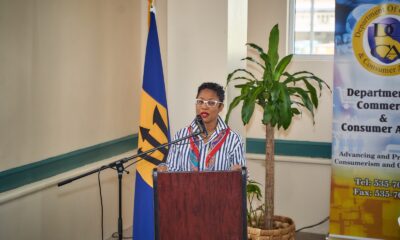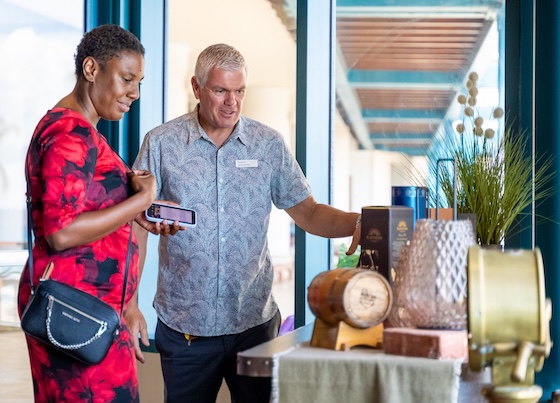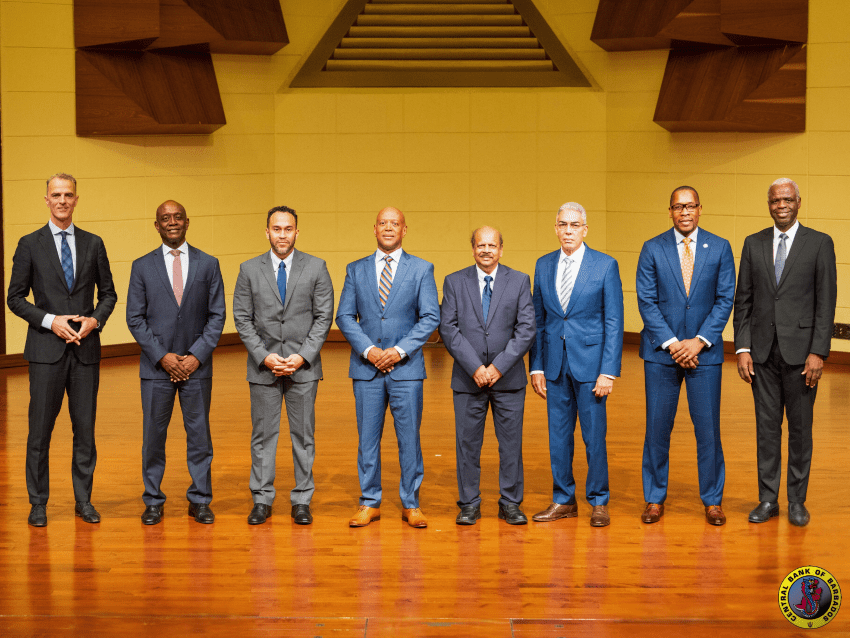Article by Kimberly Chan, PMQ, MBA
As a recently founded Caribbean body, the Caribbean Institute for Human Management (CaIHRM) hosted its first webinar on October 30, 2024, with a focus on Re-imaging Caribbean HR: The Future Operating Model, staying true to its mission, “As the voice of Caribbean HR is to unite and empower regional bodies through innovative representation, advocacy and capacity building.”
This inaugural event was opened by Mrs. Georgia Donaldson (Director – CaIHRM) and moderated by Mr. Michael McAnuff-Jones (Chairman – CaIHRM) who guided the rich discussions with presentations from the powerful and dynamic panel of regional executives and trailblazers which included:
- Mrs. Cavelle Joseph-St. Omer – President, CaIHRM & Human Resource Management Association of Trinidad & Tobago (HRMATT)
- Dr Cassida Jones Johnson – Director, CaIHRM & Human Resource Management Association of Jamaica (HRMAJ)
- Ms. Esaura Cumberbatch – Director, CaIHRM & Immediate Past President, The Bahamas Society for Human Resource Management
- Mr. Nicholas Roberts – Human Resource Management Association of Barbados (HRMAB)
The panellists discussed strategic initiatives through the five (5) HR Operating Models highlighted in a recent article by Mckinsey presented by the panellists who added their interpretation and views as follows:
- Ulrich+
This model is an adaptation of the classic Ulrich model, with HR business partners developing functional spikes and taking over execution responsibilities from centers of excellence (CoEs). In turn, CoEs are scaled down to become teams of experts and selected HR business partners. They are supported by global business services and have a digital operations backbone. Many CHROs believe the classic Ulrich model is not up to solving today’s HR challenges, with HR business partners lacking the skills and time to keep up with the latest HR developments. Inflexible CoEs limit agile reactions, while other organizational boundaries have steadily become more permeable. Multinational businesses with mature and stable business models are often the ones that experience these pain points.
- Agile
This model calls for a smaller number of HR business partners, with an emphasis on counseling top management, while CoE professionals focus on topics such as data and analytics, strategic workforce planning, and diversity and inclusion. The freed-up resources are pooled to implement cross-functional projects. CHROs who favor this operating model believe that HR needs to accelerate to keep up with the increased focus on execution exhibited on the business side and to prevent HR from hindering rapid transformation. Companies are applying this and other agile methodologies when experiencing rapid growth or discontinuity. (For an example of this model, see sidebar “An agile transformation.”)
- Ex-Driven
This model is meant to help CHROs gain a competitive advantage by creating a world-class EX journey. Putting EX first means allocating disproportionate resources toward “moments that matter.” For example, HR, IT, and operations experts could be granted full responsibility to jointly plan, develop, and roll out a critical onboarding process. By creating a world-class EX, HR becomes the driving force in bridging cross-functional silos and in overcoming the patchwork of fragmented data and processes that many organizations suffer from today. The companies employing this model are highly dependent on their top talent, with a small set of clearly defined competencies. (For more on this model, see sidebar “Optimizing the employee experience.”)
- Leader-Led
In this model, CHROs transition HR accountability to the business side, including for hiring, onboarding, and development budgets, thereby enabling line managers with HR tools and back-office support. This archetype also requires difficult choices about rigorously discontinuing HR policies that are not legally required. Too much oversight, slow response times, and a lack of business acumen in HR have led some companies to give line managers more autonomy in people decisions. Companies exploring this choice typically have a high share of white-collar workers, with a strong focus on research and development.
- Machine-Driven
With this model, algorithms are used to select talent, assess individual development needs, and analyze the root causes of absenteeism and attrition—leaving HR professionals free to provide employees with counsel and advice. As digitalization redefines every facet of business, including HR, CHROs are looking for ways to harness the power of deep analytics, AI, and machine learning for better decision outcomes. Organizations that are experimenting with this are primarily those employing a large population of digital natives, but HR functions at all companies are challenged to build analytics expertise and reskill their workforce.
(Excerpt – HR’s new operating model – December 22, 2022 | Article https://www.mckinsey.com/capabilities/people-and-organizational-performance/our-insights/hrs-new-operating-model)
This event hosted over one hundred (100) participants from HR Practitioners and Business Executives from across the globe. CaIHRM will continue to host events of a similar nature to engage in conversations toward the development of our Caribbean countries.

 Local3 weeks ago
Local3 weeks ago
 Tourism2 weeks ago
Tourism2 weeks ago
 Sports2 weeks ago
Sports2 weeks ago
 Features2 weeks ago
Features2 weeks ago
 Entertainment3 weeks ago
Entertainment3 weeks ago
 Business7 days ago
Business7 days ago
 Business4 weeks ago
Business4 weeks ago
 Business2 weeks ago
Business2 weeks ago



















